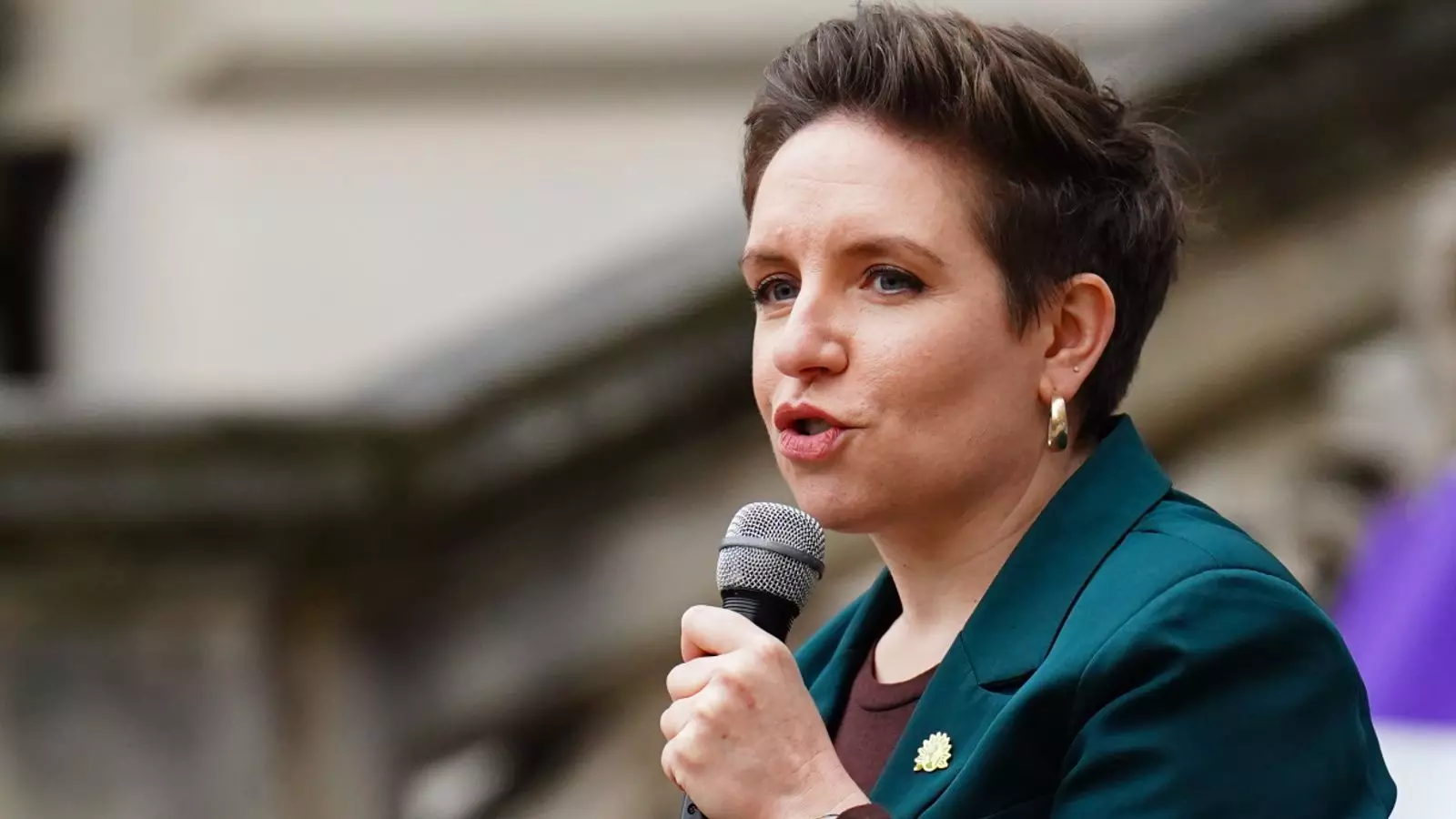The Green Party is at a critical juncture, grappling with a defining issue that ripples through not just its ranks but also the broader societal landscape: trans rights. The apparent discord between co-leaders Carla Denyer and Adrian Ramsay has surged to the forefront, igniting discussions about the party’s commitment to its progressive values. In her recent statements, Denyer attempted to reassure supporters of their cohesion, yet her inability to decisively align with Ramsay on whether “trans women are women” raises unsettling questions. Is this the beginning of a fracture within a party that has long prided itself on inclusivity and progressive ideals?
While Denyer champions a steadfast pro-trans position—asserting that trans identities are valid—she dances around the edges of a deeper rift. This hesitation, whether born of political strategy or personal misalignment, creates a perplexing narrative. The Green Party’s identity is built upon an ethos of acceptance, yet it risks alienating both its grassroots supporters and prospective voters by failing to project a shared vision on such a pivotal matter.
Campaigns Without Clarity
As the local elections approach, the Greens aim to rally confidence despite this turbulence. The party’s electoral strategy seems to be rooted in optimism, buoying themselves on past successes. In a landscape marred by disillusionment with traditional political institutions, the Greens have positioned themselves as a refreshing alternative. Yet, the critical question remains: can an organization beset by internal contradictions effectively galvanize a support base?
Denyer’s acknowledgement of potential discomfort felt by cisgender men in defining womanhood hints at a desire to soothe dissent rather than challenging it head-on. This navigational caution may unfortunately dilute the party’s empowering message aimed at trans individuals. In essence, while the Greens intend to harness the momentum built from previous electoral victories, the shadow of uncertainty over their commitment to trans rights poses a significant barrier.
The Green Gamble: Aspirations vs. Reality
With only five seats on Kent County Council, the Greens’ aspirations may seem ambitious but not unrealistic given the current political climate. They are betting on a public yearning for alternatives to the status quo—evident as faith in established politics wanes. However, riding this wave requires unwavering conviction in their principles, especially as cultural conversations about representation and identity intensify.
Despite Denyer’s hopes for breakthroughs in the election, obstacles loom large. The political ecosystem has been significantly altered by high-profile figures such as Nigel Farage, who has successfully leveraged celebrity to enhance his political clout. This contrast highlights the Greens’ struggle: while Farage thrives on incendiary rhetoric and its accompanying media circus, the Greens must navigate a delicate balance between principle and pragmatism. Denyer’s dismissal of a Farage-style populism as antithetical to their grassroots values might be admirable, but this might also relegate them to the sidelines as others dominate public discourse.
The Power of Visibility Versus the Pitfalls of Celebrity
It is evident that visibility—media attention, social media presence, and charismatic leadership—plays a significant role in modern politics. The Greens’ insistence on grassroots organization over individuality becomes problematic when competitors capitalize on this very phenomenon. Without clear, media-friendly messages and personalities, the party risks remaining obscure in a noisy political environment.
The challenge for the Greens now lies in articulating a vision that not only champions environmental concerns but also embodies the diversity of identities that its supporters represent. The party must decide: Will it retreat into the safety of its established values, or seize the moment to embrace a bolder stance on trans rights as a core aspect of its identity? Political survival in this era requires not just tactical moves but a fierce commitment to unity within its ranks and clarity in its advocacy.
As the day of reckoning at the polls approaches, the Greens must confront these uncomfortable truths. The urgency of expressing unwavering support for marginalized communities cannot be overstated. Standing in the gray areas of political discourse may alienate those who need validation the most. In a world increasingly marked by division, can the Greens afford to present themselves as anything less than entirely united in their commitment to equality?

